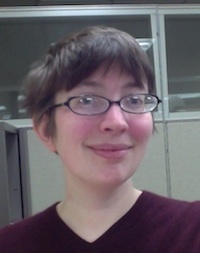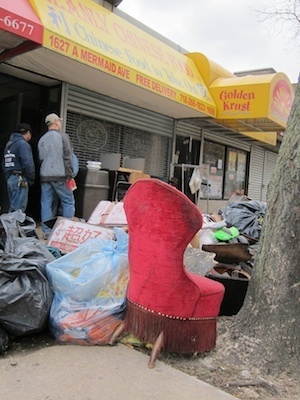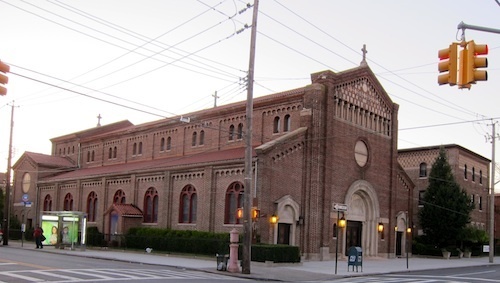
Catherine Osborne, Ph.D. candidate in theology at Fordham University, joined the Cushwa Center in January as a fellow. We sat down with her recently to hear her story.
What brought you to the Cushwa Center?
This is my last year of doctoral work, and I'm on a research and writing fellowship. I wanted to be in a community setting, so I was living at Providence House in Coney Island. It’s run by the Sisters of St. Joseph in Brooklyn, whom I knew through my parish. They have a number of houses, mostly working convents that no longer need all their rooms for sisters, so they provide bridge housing for women who are on parole, giving them a place to live and a supportive community while they find jobs and save up a bit. They also house volunteers, and they agreed to house me while I finished my dissertation.
That was going great until Superstorm Sandy hit, and the basement and first floor of the house—including the electrical system, the boiler, and the kitchen—were flooded. I was lucky; my books and research notes were on the second floor, so they were fine. But a lot of people I'd met through the parish lost most of their belongings, and the whole neighborhood was without electricity and heat for weeks or months.
Providence House is closed while it replaces the basement and first floor, so I needed somewhere to go. I'd done dissertation research at the Notre Dame Archives and in the library here (in fact, the Cushwa Center funded some of my early research for this project), and I had a friend in South Bend who was willing to house me. When I found out there was available office space at Cushwa, things just came together, and I'm here for a couple of months.
How have you structured your time here?
Most of my work is in the office; I'm at a point where I'm turning lists of notes and photos into text. But I've also been using Notre Dame’s Architecture Library and the Hesburgh Library. They're fantastic resources.
Tell us about your current research focus.
The working title of my project is "American Catholics and the Church of Tomorrow, 1930-1975," and it focuses on how American Catholics imagined—and sometimes actually built—what they thought would be the church spaces of the future. I’m looking at the connection between how we imagine the church building and how we imagine the Church. I'm also interested in land use; it's where the rubber hits the road, where what the Church says it values needs to interact with the nitty-gritty of buying, selling, and using land and buildings.
It sounds like your interest in the connection between church buildings and how Catholics imagine the Church is related to the reality of what happened during and after the storm. Will Sandy influence the course of your research?
It's too soon for me to say if this will affect my research. But the storm did remind me of some things about Catholic use of space. When I returned to the neighborhood a couple days after the storm, the parish block was the center of a lot of activity; FEMA and Red Cross trailers were in the parish parking lot, and lots of people were already cleaning out the church. It's an important institution in the neighborhood, a central location that people care about and that is available as public space when events like this happen. There aren't a lot of places like that in most neighborhoods.

The gold standard in research on space and place, Catholicism, and climate change, is currently being set by Mike Pasquier down in Louisiana, but maybe someone should start looking at how hurricanes are going to affect religious life in cities that aren’t used to having them, like New York. This was our second one in two years!
What's been the most beneficial part of your time at the Cushwa Center?
Just having the quiet and dedicated space to come to every day. After Sandy, my life was pretty chaotic. My friends were great and really generous, but I was sleeping on couches and moving around every week or two with a backpack and a box of books. It was pretty hard to focus. Also, I didn't have access to my notes and books for six weeks, which put me behind schedule. So it's been great to just get work done.
